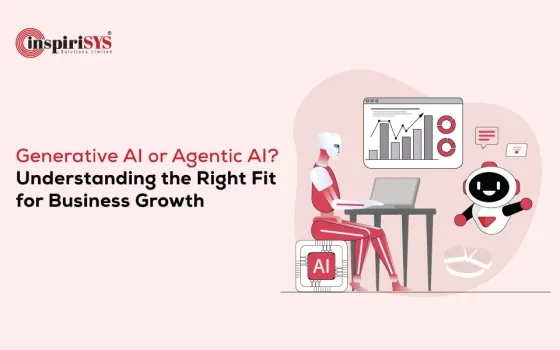https://www.quest-global.com/resources/democratizing-generative-ai-through-pre-configured-hardware-appliances/
The Emergence of Generative AI and Industry Appliances
Generative AI, which encompasses technologies capable of producing data that is often indistinguishable from human-generated content, has witnessed an explosion in its applications and development. From deep learning models that generate realistic images to complex algorithms that can write code or create music, generative AI is rapidly evolving and becoming ubiquitous.
AI appliances are specialized systems designed to streamline and simplify the deployment of AI models for training or inference. They play a key role in making powerful AI tools accessible to common people and companies without the need for deep technical expertise or extensive resources. In providing a turnkey solution that combines both hardware and software along with tools, these appliances lower the barrier to entry, allowing more users and businesses to harness the power of AI for various applications. In this article, I share my thoughts on how this journey towards democratization of AI is unfolding in front of our eyes.
The Evolution of Generative AI
Generative AI's journey from academic laboratories to industry-wide deployment almost happened overnight. However, its historical context is rich with milestones, from the inception of neural networks to the advent of transformers and beyond.
When OpenAI’s ChatGPT was launched, it took just five days to reach 1 million users, it was the fastest adoption of technology at this scale. Its recent advancements, particularly in LLMs, have changed the game, allowing for applications that were previously considered science fiction.
This transition from a lab curiosity to an industry staple has been facilitated by significant investment and research, leading to the creation of more sophisticated and capable models that can be employed across a spectrum of industries.
The Importance of Specialized Compute Infrastructure
The backbone of generative AI's rapid development is the specialized compute infrastructure that has been developed alongside it. Along with GPUs, Neural Processing Units (NPUs) and Tensor Processing Units (TPUs) are specifically designed to handle the parallel processing requirements of machine learning algorithms, providing the necessary computational power to run complex models.
NPUs and TPUs are tailored to AI's computational needs and specifically designed to process the parallel computation that AI algorithms demand efficiently. These processing units enable handling extensive datasets and complex model architectures, thereby accelerating the training and inference phases of AI development. Recent advancements have also made these technologies more energy-efficient and capable of handling more significant computational loads with reduced latency.
In the automotive industry, the integration of AI Processing units is reshaping vehicle intelligence systems. Advanced driver-assistance systems (ADAS) and Autonomous Driving (AD) functionalities rely on the real-time processing capabilities of these specialized chips. Generative AI models powered by such infrastructure are enabling vehicles to interpret sensor data more effectively, predict potential hazards, and make safer driving decisions.
In healthcare, the impact of advanced systems and silicon in generative AI is equally profound. AI-powered diagnostic tools are becoming increasingly accurate, aiding in the early detection of diseases and conditions. For instance, generative AI models that utilize AI Processing units are enhancing the analysis of medical images, leading to more precise diagnoses and personalized treatment plans. The speed and efficiency provided by these systems are crucial for processing large datasets, such as those required for genome sequencing, leading to breakthroughs in precision medicine and patient care.
The influence of advanced computing infrastructure on the performance and capabilities of AI is evident from these sector-specific applications. However, the benefits of specialized systems extend beyond individual industries. The democratization of AI and Generative AI through pre-configured hardware appliances is emerging as a pivotal element in this technological revolution. The availability of such AI appliances is making sophisticated AI tools more accessible, providing organizations with industry-specific, plug-and-play solutions that integrate seamlessly with their existing workflows.
AI appliances, equipped with AI Processing units along with the required software framework and tooling, are simplifying the deployment of complex models, thereby eliminating the need for deep technical expertise and lowering the barriers to entry. These appliances are designed to be scalable, catering to the growing needs of businesses, and secure, ensuring that sensitive data is processed and analyzed with the utmost integrity.
Bridging the Gap Between Capability and Usability In AI Appliances
AI appliances serve as a bridge between the raw power of AI & generative AI and its practical, everyday use. They encapsulate the complexity of AI systems into user-friendly packages that can be easily integrated into existing workflows. The market is already flooded with pre-configured solutions tailored for specific industry use cases, and these appliances make it simpler for organizations to adopt and benefit from AI technologies.
With the current wave of AI hardware poised to hit the market, it's clear that the integration of artificial intelligence into consumer gadgets is set to redefine user experience and interaction with technology. Devices like the Ray-ban | Meta Smart glasses, voice-controlled AI Pin from Humane, the AI-powered R1 from Rabbit, and AI-enabled smart glasses from Brilliant Labs featuring AI for real-world navigation showcase a future where AI is not just an added application but the core of the technological experience.
For instance, when you interact with the Ray-ban | Meta Smart glasses, you are not just using a device to complete a task; you are engaging with a sophisticated suite of language models designed to understand and fulfill your request. Similarly, asking Rabbit’s R1 about an object will prompt it to run through image recognition and data processing models to provide you with an informed answer.
Looking at sectors like healthcare and retail, the potential for similar AI appliances is immense. In healthcare, such AI-driven appliances could process complex medical data at unprecedented speeds, helping clinicians in diagnosing conditions more quickly and accurately and at the same time ensuring the Data privacy requirements. They could also tailor treatment plans based on a deep analysis of a patient's unique medical history, responding to inquiries with medical knowledge that is updated in real-time.
In retail, AI appliances could transform inventory management through real-time stock analysis and predictive algorithms that anticipate consumer buying patterns. Customer service could be revolutionized by AI interfaces that understand and respond to customer inquiries with a level of personalization and efficiency that was previously unattainable.
These examples are just the beginning of how AI appliances could become integral to various sectors, enabling faster, more personalized services and creating a new technological paradigm. The combination of AI with specialized hardware promises to transform how we interact with devices and how industries operate, leading to a future where technology is seamlessly integrated into our lives, responsive to our needs, and capable of anticipating our demands.
For the enterprise world, instead of just a server or HPC, an AI appliance can surely enable the deployment of AI and Generative AI workloads quicker than ever, by short-circuiting the whole tool and framework evaluation and deployment process, and also the more tedious continuous training, testing and deployment pipeline post initial deployment. While large enterprises would be able to cough up the required money, resources, and experts required, the same would not be true for Medium and Small Enterprises. These appliances would help fast-track their adoption and make it accessible and thus democratize AI / GenAI
The Long Journey to AI Democratization
The democratization of AI through specialized hardware appliances represents a significant leap towards an inclusive future where AI's benefits are widely available. This movement promises to unlock new opportunities, drive innovation, and form a more efficient and creative world of the future.
As this technology continues to mature, it is expected that AI appliances will become more sophisticated and more seamlessly integrated into the fabric of industry operations, empowering businesses to reach new heights of productivity and innovation.



















